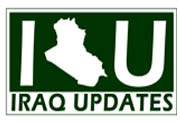Current negotiations over the security agreement between Iraq and the United States have come back into the headlines of Arab newspapers, which also focused on the Iraqi government’s decision to prohibit Iraqi bodies from dealing with the Iranian Mujahideen Khalq (People’s Mujahideen) opposition group.
States have come back into the headlines of Arab newspapers, which also focused on the Iraqi government’s decision to prohibit Iraqi bodies from dealing with the Iranian Mujahideen Khalq (People’s Mujahideen) opposition group.
The Jordanian al-Ra’i newspaper published an article entitled, ‘Mujahideen Khalq, where is the truth?’ by Hazem Mubaydeen.
The author said that the opposition group rejects the use of religion to gain political power, and is therefore "in harmony with the western world, which no longer accuses it of terrorism." The organization, according to the author, interferes in the domestic affairs of the country in which it is based and seeks to improve the conditions of its temporary presence.
"Some Iraqi politicians are currently seeking to activate the role of the group, in response to what they regard as the Iranian interference in their country’s affairs," the author argued.
On June 18, an official spokesman for the Iraqi government, Ali al-Dabbagh, said in a statement that the Iraqi government had prohibited dealing with the Iranian Mujahideen Khalq Organization. The decree encompasses any organization, party, institution, and individual, Iraqis or foreigners, inside Iraq, and that anyone who violates this decree will be charged according to the terror law.
Established in 1965, the organization is based in Camp Ashraf near al-Adheem area, Diala province, and close to the Iraqi-Iranian borders.
Commenting on the U.S.-Iraqi security agreement, the Saudi-financed al-Hayat newspaper published an article by an Iraqi author in which he criticized the media blackout surrounding the negotiations. The author said that a look at similar agreements signed between the United States and other countries, including Japan, South Korea and Germany, is enough to demonstrate the United States’ desire to reinforce its military presence in these countries for several decades. According to the author, restoring security responsibilities is a major requirement for the end of foreign troop presence in the country. The Iraqi side should be responsible for the building of armed forces and should have a full control over all forces, he added.
The agreement governs the presence of U.S. forces in the country after 2008 and will not come into force without the approval of the Iraqi Parliament, which has 275 members from five blocs, in addition to the Sadrist movement and al-Fadhila party. U.S. troops’ presence currently relies on a mandate by the United Nations and is annually renewed at the request of the Iraqi government.
A declaration of principles was signed between U.S. President George W. Bush and the Iraqi premier in December 2007. The declaration was scheduled to be ratified on July 31, 2008 and to come into force as of January 1, 2009.
Iraqupdates – Amman, 28 June 2008 (Voices of Iraq)

